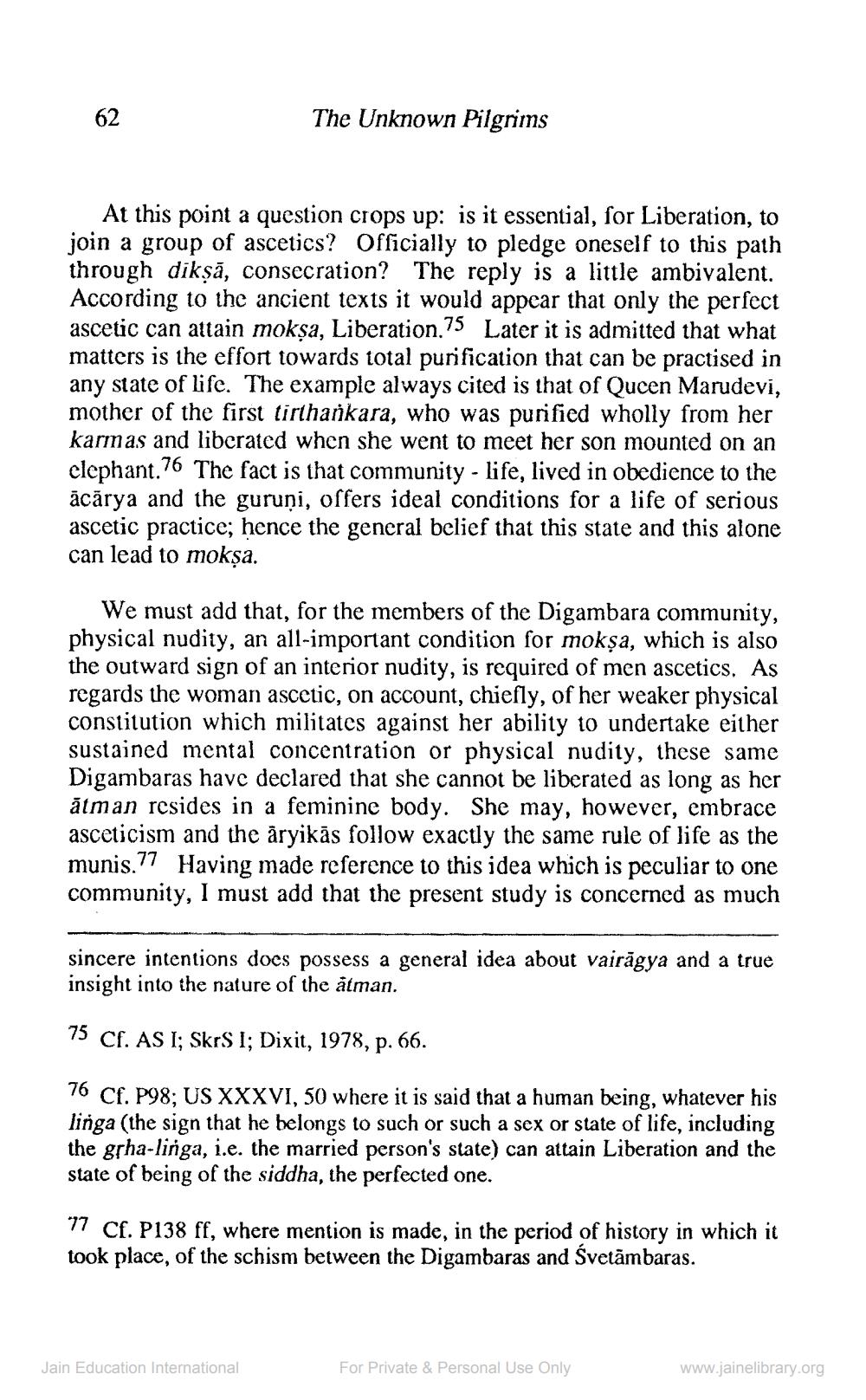________________
The Unknown Pilgrims
At this point a question crops up: is it essential, for Liberation, to join a group of ascetics? Officially to pledge oneself to this path through dikṣā, consecration? The reply is a little ambivalent. According to the ancient texts it would appear that only the perfect ascetic can attain mokşa, Liberation.75 Later it is admitted that what matters is the effort towards total purification that can be practised in any state of life. The example always cited is that of Qucen Marudevi, mother of the first tirtharkara, who was purified wholly from her karmas and liberated when she went to meet her son mounted on an elephant.76 The fact is that community - life, lived in obedience to the ācārya and the guruni, offers ideal conditions for a life of serious ascetic practice; hence the general belief that this state and this alone can lead to mokṣa.
We must add that, for the members of the Digambara community, physical nudity, an all-important condition for mokşa, which is also the outward sign of an interior nudity, is required of men ascetics. As regards the woman ascetic, on account, chiefly, of her weaker physical constitution which militates against her ability to undertake either sustained mental concentration or physical nudity, these same Digambaras have declared that she cannot be liberated as long as her ātman resides in a feminine body. She may, however, embrace asceticism and the āryikās follow exactly the same rule of life as the munis.77 Having made reference to this idea which is peculiar to one community, I must add that the present study is concerned as much
sincere intentions does possess a general idea about vairāgya and a true insight into the nature of the atman.
75 Cf. AS I; SkrS I; Dixit, 1978, p. 66.
76 Cf. P98; US XXXVI, 50 where it is said that a human being, whatever his linga (the sign that he belongs to such or such a sex or state of life, including the grha-linga, i.e. the married person's state) can attain Liberation and the state of being of the siddha, the perfected one.
77 Cf. P138 ff, where mention is made, in the period of history in which it took place, of the schism between the Digambaras and Svetāmbaras.
Jain Education International
For Private & Personal Use Only
www.jainelibrary.org




